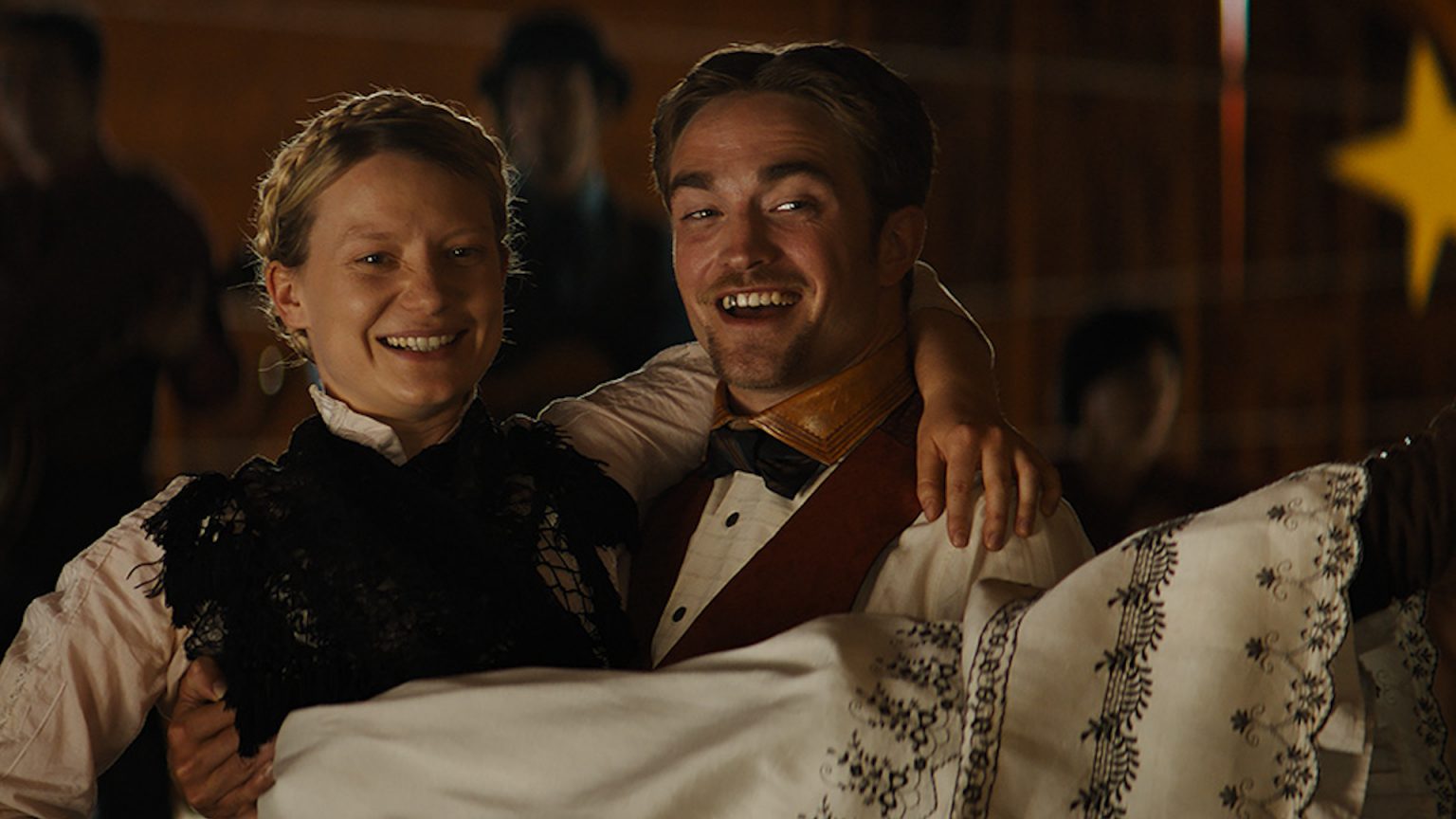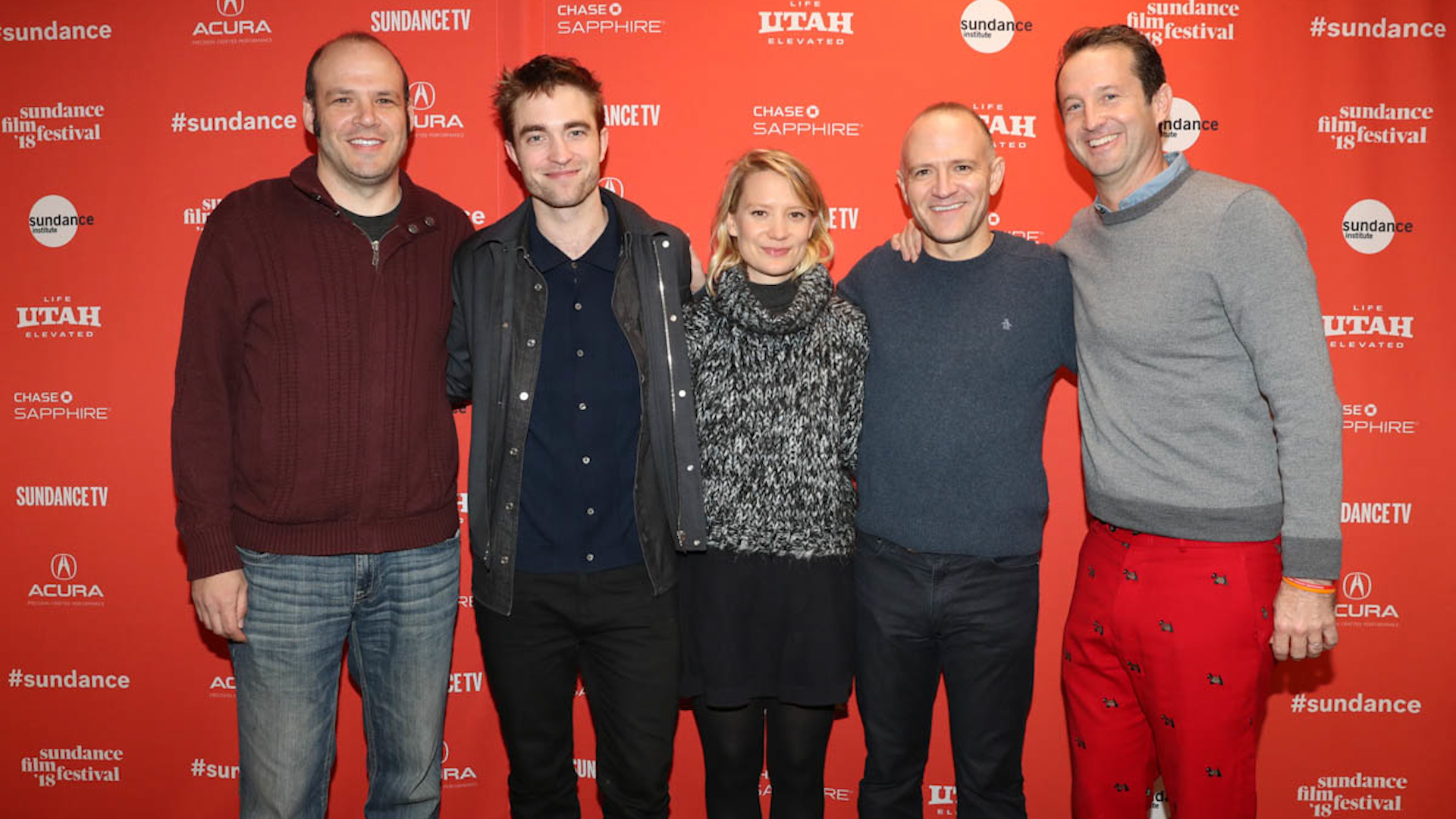David and Nathan Zellner have been festival darlings since the mid-2000s, first with their short films and then with their feature films, Kid-Thing, Kumiko, The Treasure Hunter, and Damsel, which premiered at this years’ Sundance Film Festival. Now, on the first day of the Berlin International Film Festival, where Damsel is once again featured, we revisit our interview with the indie duo as they react to their latest film premier.
Imagine working alongside your sibling. Now imagine not just working alongside that sibling, but making a movie with that person. When I spoke with directors David and Nathan Zellner, I told them that very idea of that was horrifying to me. To spend that much time with my brother trying to create something intimate, engaging, and powerful, would be my undoing. Their response? “It’s the only way we know how to do this,” said Nathan.
And it’s true. For over a decade, the Austin-based filmmakers have managed to churn out one delightfully unusual project after the next. In 2014, they came to Sundance with Kumiko, the Treasure Hunter, a carefully paced drama about a Japanese woman who believes the movie, Fargo, to be an actual document that can lead her to a large case of money. Get past the absurdity of the log-line, and you’ll find yourself immersed in the Zellner’s dual psyche.
The Sundance darlings returned to the festival this year with Damsel. It stars Robert Pattinson and Mia Wasikowska in roles that defy description. What appears, at first, as an homage to the Western genre of yesteryear ends up somewhere completely different. As per usual, David and Nathan have upended expectations and, in this case, an entire genre.
Sam Fragoso: Run me through your feelings as Damsel premiered in front of a huge audience at the Eccles theatre. Were you both like, “Thank god it’s finally out into the world?”
Nathan Zellner: Yeah, because the two of us have been in a cave forever, just editing, finishing up this film, and it’s so nice when you finally have it done and you’re sharing it with people and you get a warm response.
David Zellner: Because we’ve seen the talent and the humor over and over and over and over again. It was nice to feel that energy and to hear how people react to things—sometimes the things that we didn’t realize were funny.
NZ: Well, you just never know tonally how something will play.
DZ: Until you see it with a big crowd. It was such a fun screening and it felt really good to finally launch it.
SF: Was there something people laughed at that was shocking or surprising to you two?
NZ: We’ve tested the film a bit, so you have a decent idea, but then again you never entirely know what will land. It’s interesting, from screening to screening, people can respond differently to different things. We have more overt jokes and then some subtle things that we sneak in there that sometimes are just passing, part of the conversation, and sometimes they register as something more. It’s always nice when people pick up on more of the subtle things.
SF: How do you two manage to not strangle each other when you’re working on set like this?
NZ: (laughs) Having written the script ourselves, a lot of it is worked out prior, but I think we just try to work all the kinks out before we’re on set so we’re not wasting anyone else’s time with any disagreements on our end. We’ve been making movies since we were little kids—home movies—so from an early age we’ve been working together and learning our strengths and weaknesses and buttons and how to press them or avoid them. It’s just intuitive to how we work.
DZ: We also just don’t know any other way because this is the only way we’ve worked, together.
SF: Is there one thing, Nathan, that you’re especially good at that David is weaker at and vice versa?
DZ: We have different backgrounds but everything overlaps, ultimately.
NZ: Yeah. David’s background is more from the directing and writing side, mine’s on the editing side. But we’re well aware of what’s necessary to get to the goal or what the tone is we’re going for. Things overlap and bleed together just to get into the same mindset, just to collaborate in that capacity.
SF: Tone is something you two have refined and seemed to have figured out from film-to-film. Is there a moment looking at the dailies where you both feel like, “Okay, I think we understand what we’re making.”
DZ: We really don’t intellectualize it or go into deep conversations about it with each other. A lot of it’s intuitive and being on the same wavelength from the start. Once we set these parameters that we’re working in, you get a feel for it. Everything falls into place from there.
SF: Last question before we go. What would be the advice you give to your younger self now?
NZ: You know, don’t be afraid to fail, really. Don’t be afraid to try something new and try something different and I think that’s where that comes from. It lets you understand what the goal is. When David was talking about trying to make [a film] fit a mold, you’re just going to drive yourself crazy because things change and things present themselves as something better. If you can listen to that and make sure that you stay open to things as they present themselves—whether it be something that the actor’s bringing or the weather changes—you’ll be fine. Once you look at it in post, the footage dictates things a certain way, especially in terms of what you want to focus on or cut. That helps you keep level-headed throughout the process.
Check out all of Fandor’s Zellner Brothers films right here on Fandor.





